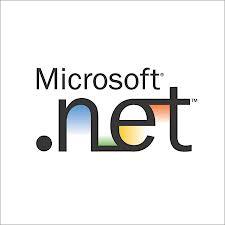Now that Microsoft's .NET is open sourced and set to expand to Linux and OS X, can it challenge Oracle's Java?


10 Smart Tech Toys For Kids
10 Smart Tech Toys For Kids (Click image for larger view and slideshow.)
Microsoft announced Wednesday that it will open source the server-side components of its .NET Core stack. The move could help the company, which has been criticized in recent years for falling out of step with developers, maintain a major role in the evolution of the web. What's more, Microsoft plans to expand .NET to run, not only on Windows, as it already does, but also on OS X and Linux.
The .NET framework supports a variety of programming languages with which developers can make apps, including C++, C#, Visual Basic, and Python. It also enables a number of functions crucial to enterprise apps, such as database interactions.
Though widely used among Windows Server customers, .NET has lagged behind competitors in certain regards, unable to easily match new trends such as the increasing use of containers on Linux-based servers. "On the server side, a lot of workloads are going to the cloud," Forrester analyst Jeffrey Hammond told us in a phone interview. Companies can "forklift" the workloads to the cloud and run them on an OS like Windows or rebuild the workloads to take advantage of specific cloud services that have been separated from the underlying OS, such as OneDrive for file sharing or Amazon Simple Workflow Service for workflow management.
[Microsoft wants to help you prioritize your email In box. Read Microsoft's Answer To Death By Email: Meet Clutter.]
"For many of the functions that used to be in the OS, it doesn't make much sense to monolithically tie everything together," Hammond said. ".NET has potential to make some real advances, and to do it in a way that's compatible with things like Linux and containers, where you could have .NET services run insider Docker containers."
Over the last few years, Microsoft has lost stature with many developers and systems administrators, who felt the company was standing still, caught in PC-era protectionist tactics as the cutting edge moved toward mobile devices and the cloud. Since taking over for Steve Ballmer this year, CEO Satya Nadella has championed a cross-platform strategy that, rather than revolving around Windows, emphasizes how Microsoft's software and cloud infrastructure gives users and developers more flexibility.
In April, at its Build conference in San Francisco, Microsoft open-sourced parts of the .NET stack, including its "Roslyn" compiler. The company also established the .NET Foundation to facilitate its participation in the open source community. But with the latest news, Microsoft is taking a big step forward.
Hammond said Microsoft's vision for a cross-platform .NET framework should reassure the .NET community, which totals more than 6 million developers. Some of these developers likely felt they'd have to drop Microsoft's technologies and learn new skills to keep up, he said, but now .NET provides a more viable path forward. This path might include applying .NET skills to non-Windows products -- but then again, Windows Server and Azure are evolving alongside .NET. Last month, for example, Microsoft announced Windows Server will soon support the use of containers to separate applications running on the same server.
Developers who'd previously been put off by .NET's limitations, meanwhile, become potential converts -- and potential users of Microsoft's premium, paid developer tools, as well as Azure, its cloud infrastructure. Microsoft's struggles with Windows Phone won't seem so bad, after all, if the company can convince a sizable number of iOS and Android developers to use its tools and resources to build and host their apps.
The move also enables .NET to square off against Oracle's Java as the virtual machine of choice for developers. In recent years, .NET's ties to Windows have impeded it from competing with Java, which can run on top of a wide variety of operating systems. "This is an opportunity for Microsoft to show that .NET is a better way to move forward in a cross-platform world," said Hammond. After a period of delays and slow innovation, "Oracle has started to get Java moving again."
Microsoft has already set up a GitHub repository where developers can access the newly open sourced bits -- but the full plan won't unfold right away. .NET support for Linux and OS X is still months away, for example.
In the meantime, Microsoft will continue its attempt to establish closer ties with developers and their evolving needs. Microsoft execs said they are working closely with the Mono community, for example. Mono is an open-source project that was, before Tuesday's news, the main means of applying .NET to non-Windows operating systems. The close attention could ensure that the Mono user base doesn't fragment just as Microsoft is trying to energize its open source troops.
Apply now for the 2015 InformationWeek Elite 100, which recognizes the most innovative users of technology to advance a company's business goals. Winners will be recognized at the InformationWeek Conference, April 27-28, 2015, at the Mandalay Bay in Las Vegas. Application period ends Jan. 16, 2015.
About the Author(s)
You May Also Like







